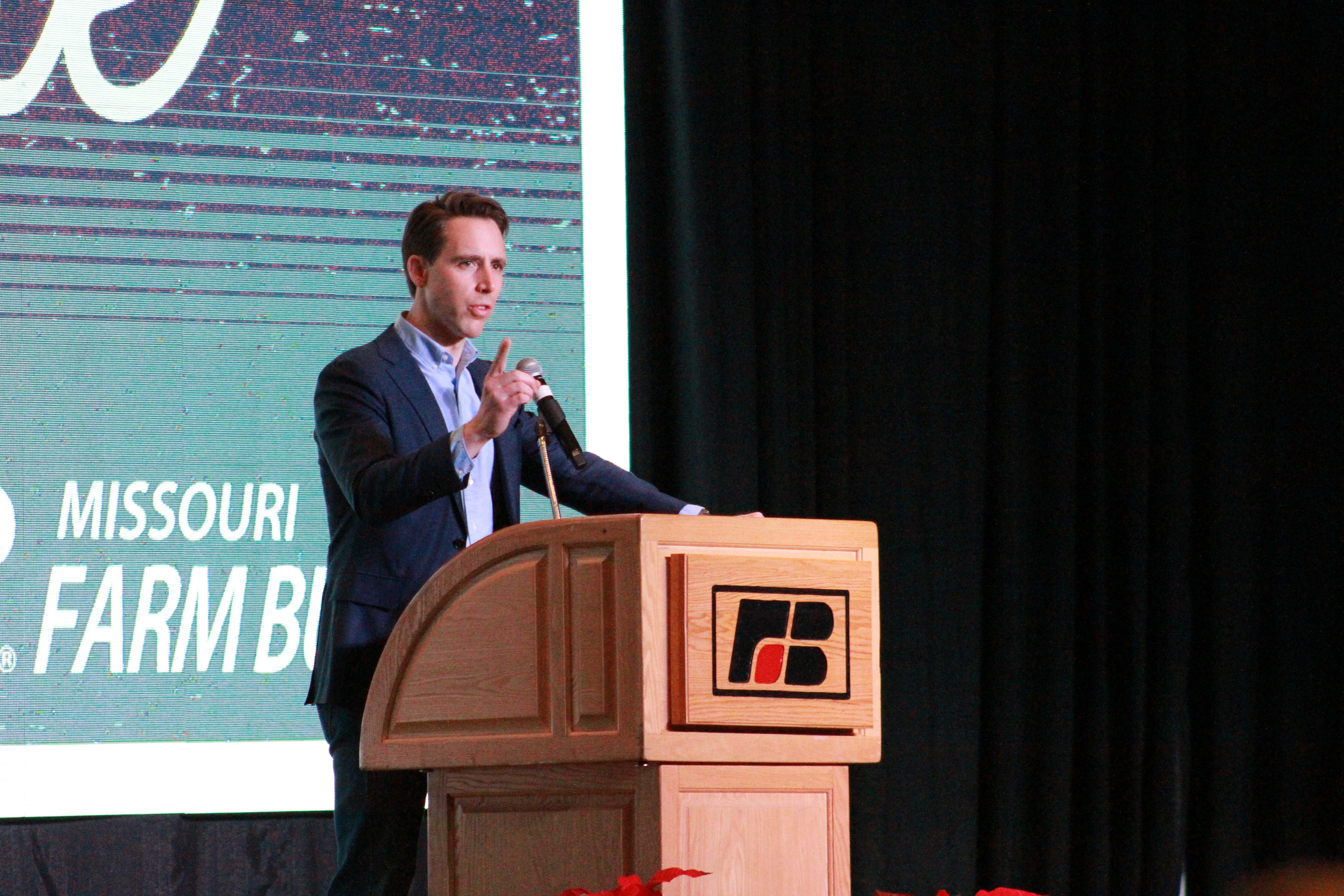U.S. Senator Josh Hawley is the latest Missouri official to push for increased accountability in the meatpacking industry, joining other lawmakers and the Missouri Farm Bureau.
Hawley called on U.S. Department of Agriculture (USDA) Secretary Tom Vilsack to investigate alleged fraud and anticompetitive behavior from large meatpacking companies, including Tyson Foods, JBS, and WH Group, pointing to supposed instances of price-fixing and refusal to allow inspections. Hawley said the nation’s meat industry was in a volatile state, leaving producers and consumers open to harm while a handful of large corporations maintained their profits.
“After years of consolidation in the beef, pork, and chicken processing industries, the food supply chain in the United States has become dangerously fragile,” Hawley said in a letter to Vilsack. “The biggest firms will not curb their anticompetitive practices unless they face a penalty that impacts their bottom line. Big companies require big penalties. Federal statute provides you with robust authority to revoke inspection services following convictions for fraudulent behavior in the marketplace.”
Hawley urged Vilsack to probe the largest firms and revoke inspection services for violators in order to “restore competition, safeguard farmers and ranchers, and ensure food security for all Americans.”
Hawley sent a request to the Federal Trade Commission (FTC) last year calling for a similar investigation after the COVID-19 pandemic shuttered facilities across the country.
The Missouri Farm Bureau (MOFB) voiced its own concerns over concentrations in the market: The group sent a letter to congressional leadership requesting an investigation earlier this year, warning of the impact on farmers and consumers.
The MOFB’s letter said the spread between the price producers were receiving for cattle and the cost packers charged for wholesale boxed beef going into the supply chain caused frustration among farmers and producers. This was on top of increased prices for consumers as the economic downturn caused by COVID-19 reached the agriculture industry.
The call to action has been nationwide, especially since the start of the pandemic: Attorney General Eric Schmitt joined 10 other states on a letter calling for an investigation by the Department of Justice (DOJ) last year, with Gov. Mike Parson voicing his own support for an investigation.
“As a third-generation cattleman myself, I understand the stress many in the cattle business have faced for years,” Parson said. “Cattlemen and cattlewomen across the United States are simply asking for transparency and accountability from our meatpackers in the beef business.”
Other members of Missouri’s congressional delegation have proposed legislative measures directed at the industry. Congressman Emanuel Cleaver and Congresswoman Vicky Hartzler introduced the Optimizing the Cattle Market Act of 2021 in June, seeking regional regulatory minimums for negotiated cash trades in cattle markets and requiring peer-reviewed research from land-grant universities to be the basis for the minimums.
“After their valiant efforts to keep food on the tables of American families, it’s critical that we do everything possible to ensure ranchers have the market transparency necessary to make informed decisions that will help them stay in business and continue to generate economic activity throughout rural Missouri,” Cleaver said.
The bill would also require the USDA to catalog beef contracts between producers and marketers while keeping them confidential and order packers to report the number of cattle scheduled to be delivered over the next two weeks, allowing producers to plan their marketing strategies. It has yet to receive a committee hearing.
Shane Miller, president of Tyson Fresh Meats, testified before Congress on the accusations last month. Miller said the company welcomed competition and said while the concentration of the market has largely remained the same over the past 30 years, the quality of the product had increased.
“We believe market forces are working as they should,” Miller said. “Customers have multiple meat suppliers from which to choose and they subject suppliers to competitive bidding processes based on terms the customers specify. Customers often work with several meat suppliers to ensure orders are filled according to their product specifications, volume requirements, and pricing terms, which adds to the constant pressure to outperform the competition.”
Missouri is home to more than 95,000 farms and ranks in the top 10 states in terms of beef, chicken, and pork production, according to the Department of Agriculture.

Cameron Gerber studied journalism at Lincoln University. Prior to Lincoln, he earned an associate’s degree from State Fair Community College. Cameron is a native of Eldon, Missouri.
Contact Cameron at cameron@themissouritimes.com.


















































